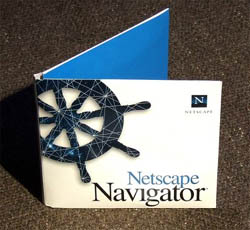Apr 19, 2024
Apr 19, 2024
 Many moons ago, when the world was younger and an infant World Wide Web was tentatively weaving its virtual strands, Netscape Navigator redefined browsing and forever changed the way we looked at the world.
Many moons ago, when the world was younger and an infant World Wide Web was tentatively weaving its virtual strands, Netscape Navigator redefined browsing and forever changed the way we looked at the world.
31-Jan-2008
More by : Soumya Sarkar